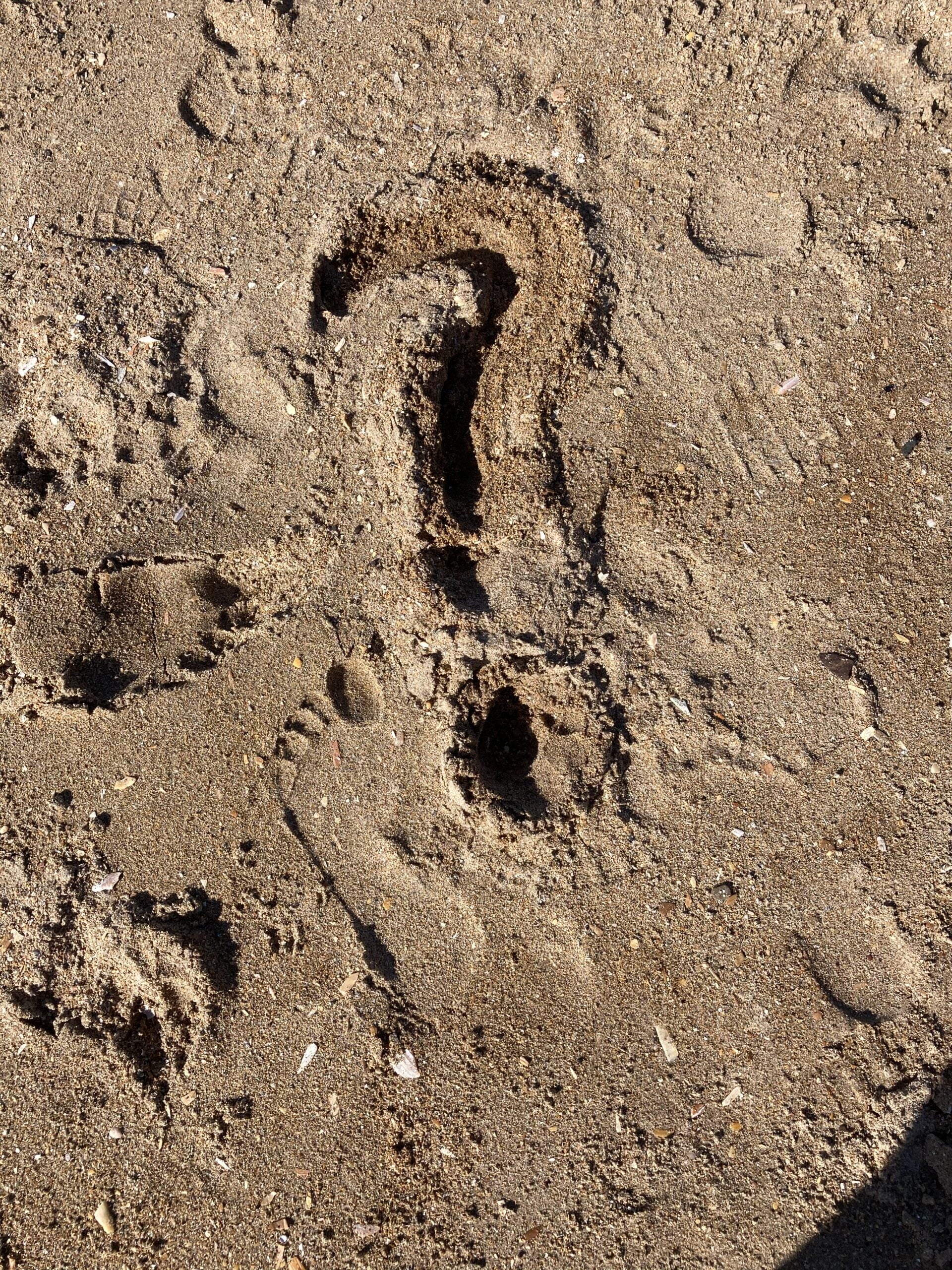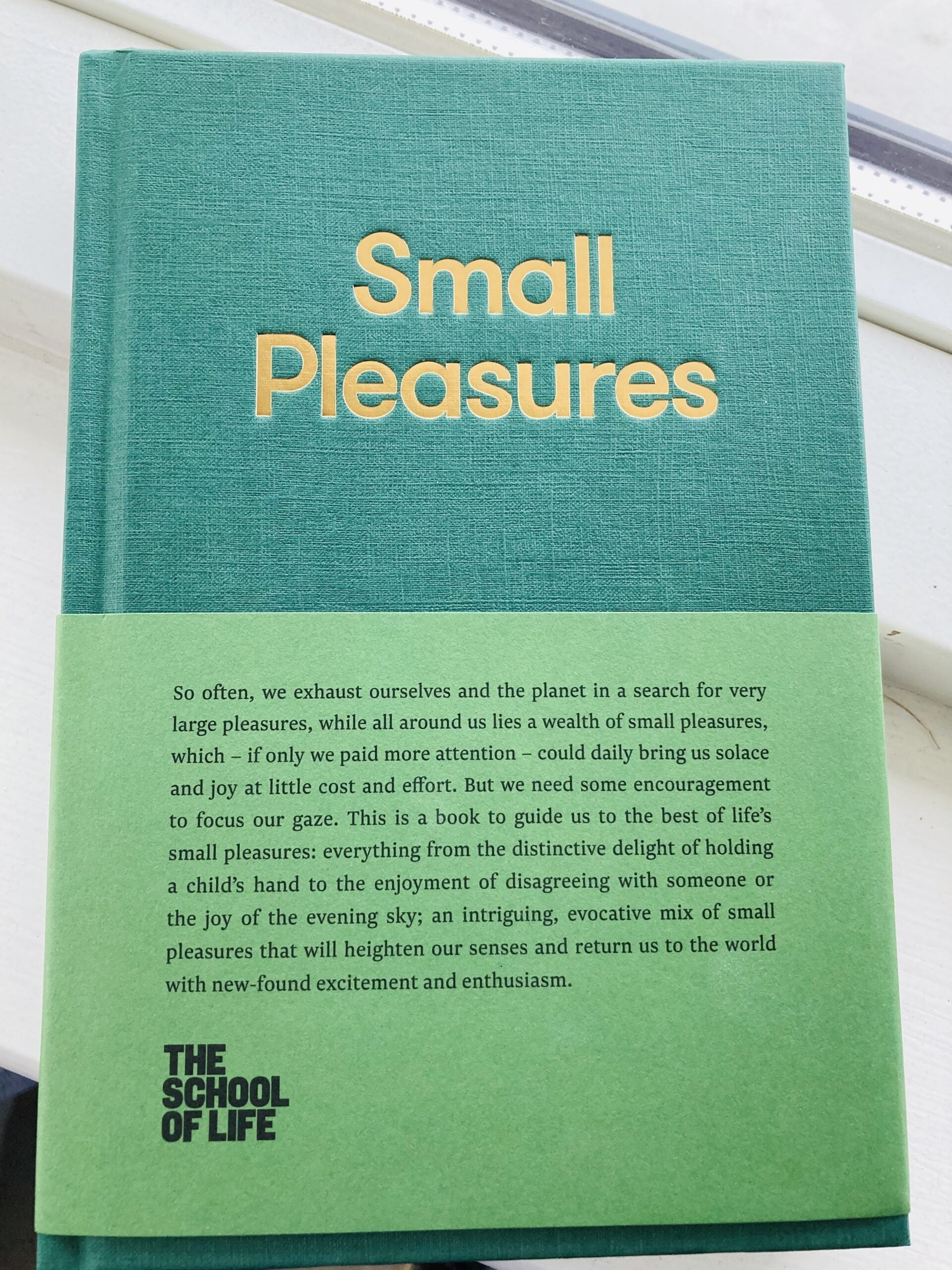Bloggin Noggin

Brain Health
How to add life to your years and years to your life.
Every Little Helps
The new WHO guidelines and key facts released on 26th November, on physical activity, suggest that every little bit of physical activity helps with our wellbeing.
We’ve blogged about the brain health benefits of walking and regular exercise and the latest guidelines from WHO state that physical activity is beneficial and can be done as part of our work, sport and leisure or transport and this includes dance, play and everyday household tasks such as gardening, cleaning and a visit to the shops.
The new guidelines recommend at least 150 to 300 minutes of moderate to vigorous aerobic activity per week for all adults. Women are encouraged to maintain regular exercise throughout pregnancy and post-delivery and people living with physical disabilities should also maintain a level of physical activity
Older adults – those people aged 65 years or older, are advised to add activities which emphasise balance and coordination, as well as muscle strengthening, to help prevent falls and improve health.
“Being physically active is critical for health and well-being – it can help to add years to life and life to years,” said WHO Director-General Dr Tedros Adhanom Ghebreyesus. “Every move counts, especially now as we manage the constraints of the COVID-19 pandemic. We must all move every day – safely and creatively.”
“Physical activity of any type, and any duration can improve health and wellbeing, but more is always better,” said Dr Ruediger Krech, Director of Health Promotion, World Health Organization, “and if you must spend a lot of time sitting still, whether at work or school, you should do more physical activity to counter the harmful effects of sedentary behaviour.”
“These new guidelines highlight how important being active is for our hearts, bodies and minds, and how the favourable outcomes benefit everyone, of all ages and abilities”, said Dr Fiona Bull, Head of the Physical Activity Unit which led the development of the new WHO guidelines.
Regular physical activity is key to preventing and helping to manage heart disease, type-2 diabetes, and cancer, as well as reducing symptoms of depression and anxiety, reducing cognitive decline, improving memory and boosting brain health. So whether its open water swimming, yoga, tai chi or walking, every little helps!
Keep Well ( and moving) , Dr Clara Russell

Brain Health
"Chess is the gymnasium of the mind"
So said Blaise Pascal, child prodigy and subsequent mathematician, inventor and physicist. And we can understand why.
Chess is often seen as a brain game for intellectually gifted people, rightly so, as it is exercises the brain.
Thanks to the runaway success of The Queen’s Gambit, the TV miniseries on Netflix, chess is enjoying a new found popularity and is widely played by young and old people.
Chess is what we could call a cerebral game and with it comes benefits for brain health.
It’s also a game you can play online or via an app if you’re unable to play a physical game with an opponent sat opposite you.
Here are some top line benefits of playing chess.
Stimulates brain growth
Chess and other brain-games challenges the brain and stimulates the neurons to form connections across the brain.
More connections mean that neural communication within the brain becomes faster at an optimal state.
Chess is an ideal example of how interaction with people can stimulate neural connections.
Promotes creativity
Playing chess activates the right side of the brain responsible for creativity, which unleashes originality among players. One study that lasted four years focused on identifying the activity that fosters the most growth in creative thinking. They had students from grades 7 to 9 to play chess, use computers, and engage in other activities once a week for 32 weeks. The results showed that the students who played chess scored higher in all measures of creativity and interestingly, their biggest area of gain proved to be originality.
Improves memory
Playing chess can improve your memory because of its complex rules which players have to remember when playing.
When it comes to making your next move your brain also uses your memory recall function to help you avoid previous mistakes or help you remember the playing style of your opponent.
Good chess players have an excellent memory and it can significantly improve a person’s memory and verbal skills.
Improves problem-solving skills
When playing a game of chess, players must think fast, and their problem-solving skills must be first rate because the opponent constantly changes the parameters as the game evolves.
It’s a game of combinations and players must be adept at understanding what can be at times, complex rules.
According to a 1992 study in New Brunswick conducted on 450 fifth-grade students, those who played chess have significantly higher scores on tests than those who did not play chess.
Increases IQ
A study of 4,000 students from Venezuela showed that playing chess can significantly increase the IQ scores of both boys and girls after four months of playing the brain-game. That means that it is possible to increase IQ by playing brain-games such as chess.
Exercises both hemispheres of the brain
A study in Germany found that both left and right hemispheres are activated when chess players are asked to identify chess positions and geometric shapes.
Children also benefit from learning to play chess at an early age.
And for those of you who’ve not watched the Netflix series and are wondering what the title refers to, it’s a chess move.
Specifically, "The Queen's Gambit refers to a move in chess, the oldest opening move in its history. It dates back to the 15th century, and sees white move their Queen's pawn to the middle of the board, then sacrificing its adjacent pawn in the next move”.

Brain Health
Keeping It Simple - 5 ways to nurture your Noggin
Looking after your brain health needn’t be taxing or expensive. In fact, there are things you can do on a daily basis which will support good brain health.
Here are 5 simple ways to support your brain health as of this moment and one of them involves the use of social media.
Do tweet me @DrClaraR with the ways in which you’re taking positive steps to improve your brain health, it’s a great way to stay connected and I’m interested in
what steps you are taking to maintain good brain health.
Drink Water
Simple and free and easy to do but sometimes we forget to drink water.
Drinking water is great for improving concentration and cognition.
Hydration also helps balance your mood, maintain a good mood and prevent headaches.
Staying hydrated also helps manage and reduce stress.
Aim to drink at least one litre of water per day if you can.
Sleep
Sleep plays a central role in our brain health it also plays a key role in memory.
Studies have found that sleep rinses the toxins from our brain which in turn enhances our attention, creativity and ability to solve problems.
We’ve blogged before on the power of a nap which can be beneficial for brain health.
Chess
If you’ve not watched The Queen’s Gambit on Netflix, we highly recommend it.
It’s a colourful, stylish drama based on a book by Walter Tevis who also wrote books which went onto become hugely successful films.
This includes The Hustler, The Colour of Money and The Man Who Fell To Earth.
The Queen’s Gambit is a fictitious tale set in the US in the 1960s and it may well encourage you to get into chess, which is a good thing.
Games such as draughts or chess can improve creativity, problem solving, memory concentration and decision making.
Give a Hug
Many of us are missing hugging friends and family due to Covid restrictions to if you’re able to hug your partner or your pet we recommend this.
Hugging lowers cortisol levels and boosts oxytocin levels and can also relieve pain.
In 2010, The New York Times reported on a study that found that athletes performed better when they showed physical camaraderie such as hugging.
The study found that teams that showed the most touch-bonding were among the highest ranking and best performing.
Social Media
There are many pitfalls to spending too much time on social media - doomscrolling.
However, social media can help us stay connected with friends and family especiallyduring times of tighter Covid restrictions.
Whether its WhatsApp, Twitter, Instagram, Facebook You Tube, Zoom, Skype, Google hang outs or FaceTime, just one of these apps can help you stay
connected with the wider world. This study extols the benefits of social media and like everything else we suggest you consume and use it in a balanced way.
Keep well, Dr Clara Russell

Brain Health
How do you describe how you feel in one word?
The language of 2020
2020 has brought into our vocabulary phrases that we would never have imagined a mere year ago. ‘Social distancing’, ‘where did you get your mask?’ “ shall we just zoom? and of course ‘in these unprecedented times’.
Why feelings and emotions matter to our brain health
As Marc Brackett PhD tells us in his book Permission to Feel, “Labelling emotions accurately increases self awareness and helps us to communicate emotions and therefore aids social interactions and relationships”.
Whilst there may not be a single word or phrase to sum up all that this year has brought us, there are many countries that have their own way of describing ways of living or groups of feelings that we might be aspiring to as a new year looms.
Purpose
Ikigai was not just a hugely successful book but is the description of the Japanese way of being that prioritises having a sense of purpose with other aspects of healthy lives
Hygge describes the Danish concept of living cosily and mindfully, enjoying life’s simple pleasures
International Language of everything
The Positive Lexicography project, compiled by Dr Tim Lomas, looks at these international untranslatable concepts in more detail.
Our favourites include -
Sisu-Finnish- describes a psychological strength that helps people deal with challenges
Heimat- German- deep rooted fondness towards a place which one feels a sense of belonging
Dadirri- Australian aboriginal- a deep spiritual act of reflective and respectful listening
Currently we may be engaging in Koselig - essentially coziness and craving comfort - we can look ahead to the date next year when we can relax in Utepils ( Norwegian, a beer that is enjoyed outside on the first hot day of the year)
Perhaps we might be able to indulge in Gigil ( the irresistible urge to squeeze someone because they are loved or cherished, also known as an untranslatable word for pure joy)
Keep well,
Dr Clara Russell

Brain Health
Brain Health Cheat Sheet
With so much going on right now, let's get back to basics for looking after your noggin
4 Simple Ways To Look After Your Brain
Changes to your body and brain are normal as we age and what we do today will impact our health in the future.
There are some things we can do to help slow any decline in brain health and memory and lower the risk of developing Alzheimer’s disease or other dementias.
Exercise
Regular exercise has many benefits, and it appears that regular physical activity benefits the brain.
Multiple research studies show that people who are physically active are less likely to experience a decline in their mental function and have a lower risk of developing Alzheimer’s disease.
Aim for 30–60 minutes exercise each week, whether that’s waling, swimming, tennis or any other moderate aerobic activity which increases your heart rate.
Eat a Mediterranean Diet
Plant-based foods, whole grains, fish and healthy fats, such as olive oil are all part of a healthier diet and focuses on more fish than red meat.
Research from 2018 found that eating a Mediterranean diet slows some changes in the brain that may indicate early Alzheimer’s disease.
The results point to a lifestyle change that could help reduce the risk of this type of age-related dementia.
Get Plenty of Quality Sleep
Sleep plays a very important role in your brain health and there are some theories that sleep helps clear or rinse the brain of abnormal proteins in your brain and consolidates memories, which boosts your overall memory and brain health. Try to maintain a regular sleep pattern in terms of the amount of deep sleep you’re aiming for. Consecutive sleep gives your brain the time to consolidate and store your memories effectively.
Stay Socially and Mentally Active
Your brain is similar to a muscle — use it or you lose it. Whether it’s reading, knitting, Soduku, dancing, crocheting, playing music, painting, gardening - hobbies are important because they help us switch off and
also learn new skills - both good for brian health. Social interaction helps to ward off depression and stress.Look for opportunities to connect with loved ones, friends and others, especially if you live alone. There is research that links solitary confinement to brain atrophy, so remaining socially active may have the opposite effect and strengthen the health of your brain.

Brain Health
Walking Your Way To Good Brain Health
We know that walking is good for us, can help us lose weight and generally feel good and now scientist have found it has a positive impact on the brain.
Researchers at New Mexico Highlands University in 2017, found that the foot's impact during walking sends pressure waves through the arteries that significantly modify and can increase the supply of blood to the brain, which is positive for brain health.
Until recently, the blood supply to the brain (cerebral blood flow or CBF) was thought to be involuntarily regulated by the body and relatively unaffected by changes in the blood pressure caused by exercise or exertion. The NMHU research team and others previously found that the foot's impact during running caused significant impact-related retrograde (backward-flowing) waves through the arteries that sync with the heart rate and stride rate to dynamically regulate blood circulation to the brain.
From the study "New data now strongly suggest that brain blood flow is very dynamic and depends directly on cyclic aortic pressures that interact with retrograde pressure pulses from foot impacts," the researchers wrote. "There is a continuum of hemodynamic effects on human brain blood flow within pedaling, walking and running. Speculatively, these activities may optimize brain perfusion, function, and overall sense of wellbeing during exercise."
"What is surprising is that it took so long for us to finally measure these obvious hydraulic effects on cerebral blood flow," first author Ernest Greene explained. "There is an optimizing rhythm between brain blood flow and ambulating. Stride rates and their foot impacts are within the range of our normal heart rates (about 120/minute) when we are briskly moving along."
For fitness guides, more information on the benefits of walking and if you’re interested in taking part in Couch to 5k and are in the UK, please visit the NHS website here.
Keep well (and keep walking)
Dr Clara Russell

Brain Health
5 Tips to Exercise Your Noggin and Improve Your Cognitive Function
When it comes to our health, it’s essential that we consider our brain health just as much as our physical and mental well-being. At Noggin, we’re on a mission to ensure that brain health is prioritised and integrated into our daily routines, recognising it as a fundamental aspect of living a balanced and fulfilled life.

Brain Health
Can you Unworry yourself Well?
"I've been worried sick"
We’ve all heard or used the term’ I was worried sick’ probably without even realising the strength of the evidence behind these seemingly glib words. Over recent years, research has shown that persistent negative emotions - such as stress and worry- can increase risk for a number of chronic diseases including asthma, cancer and heart disease
Stress versus your immune system
Since the onset of the C word, as a nation we have become increasingly focused on the importance of our immune systems. Sales of vitamins have skyrocketed as people have looked for any way they can to support themselves and the cells of their immune system in this sea of uncertainty. But is there really a connection between your immune system and stress? A study published in 2004 looked at almost 300 studies published over the last 30 years and the results confirmed that it looks like you can really worry yourself sick. The results showed a clear association between stress and the ‘dysregulation’ of our immune system.
When your immune system gets really p**d off
Dysregulation-what does that actually mean? Long term, or chronic, stress alters how your immune system functions and not in a good way. Researchers have found a further link between stress and a number of auto immune conditions (AID) including Inflammatory Bowel Disease and coeliac disease. An AID is where your immune system actually attacks itself and causes damage to healthy cells resulting in symptoms of a number of different conditions.
But we are in a global stress pandemic- what can we do?
Well here is the good news, we can address our stress and use everyday ways to reduce the impact stress has on our minds and bodies, including on our immune system. By accepting and acknowledging that stress is part of our everyday lives we can adjust our habits accordingly. Having strategies to manage stress has never been more important than right now. The weird way our brains work under stress is that we are programmed to self sabotage- the more stressed we are the more likely we are to eat junk, drink more alcohol, exercise less and have poor sleep patterns. Which of course just adds fuel to an already burning fire.
My strategy? Keep it simple
Take Time Everyday to-
Switch off social media- consciously take some time off from social media, even if it is only for a short period.
Take time out to get outside every day. Layer up with a sweater, don’t let the weather be an excuse to not get some fresh air.
Read - engaging your brain in something other than the news or work emails is important for your brain
Eat better- you know what I mean- whether it is drinking more water, an extra portion of veg or cutting back on the biscuits, there is usually something we can do to improve what is on our plate.
Supplement - with Vitamin D, 10mcg daily for adults over 18yrs to support our immune system
Shake it off- get moving, indoors, outdoors- even just a few minutes will get those feel good endorphins going
Need more?
Mindfulness practice, relaxation and CBT has been shown to improve immune function. Yes actually improve how our the cells in our immune system do their job. A study looked at patients newly diagnosed with breast cancer and evaluated the outcomes in immune function in a group that engaged in an 8 week mindfulness based stress reduction programme versus those that did not (the control group). The women who had engaged on this 8 week programme versus this control group , showed a decrease in perceived stress, fatigue, sleep problems and depressive symptoms. On further analysis of key markers of immune function within their blood samples, researchers saw a significant improvement in beneficial markers of their immune function. Pretty impressive I think.
So yes, we can unworry ourselves well, or better at least….
Keep Well
Dr Clara Russell
For more information -
https://www.mind.org.uk/information-support/drugs-and-treatments/mindfulness/about-mindfulness/
https://www.headspace.com/mindfulness
www.calm.com

Brain Health
Ever wondered what happens to your brain when you make an estimate or a guesstimate ?
Scientists discover what happens in our brains when we make educated guesses
Whether it’s at work or on a Zoom quiz, we’ve all from time to time made an educated guess and this was the basis of the research paper conducted by teams at the University of Oxford.
The researchers have identified how cells in our brains work together to join up memories of separate experiences, allowing us to make educated guesses in everyday life.
By studying both human and mouse brain activity, they report that this process happens in a region of the brain called the hippocampus.
The study, published in the scientific journal Cell, also reveals that brain cells can link different memories while we are resting or sleeping, a process that may be important in creativity.
The research was funded by the Medical Research Council (MRC), part of UK Research and Innovation (UKRI), and Wellcome, and was carried out at the MRC Brain Network Dynamics Unit at the University of Oxford, by Dr Helen Barron and Dr David Dupret.
Dr Barron said: "In everyday life we often infer connections or relationships between different things we see or hear. So even when we don't know the full story, we can make an educated guess by joining-the-dots. For example, I'm looking for my friend Sam. Someone tells me that Ben is in the library. I know that Sam and Ben go everywhere together, so I guess that Sam is in the library too.
"Although this process is crucial to everyday life, until now, we didn't know how the cells in our brains are able to form links between separate experiences."
The researchers began by pinpointing this ability to an area of the brain called the hippocampus that is already known to play a role in learning and memory.
They did this using MRI scans on people and by temporarily switching off the hippocampus in mice.
To discover precisely how brain cells enable us to make educated guesses, the researchers ran a set of very similar experiments in people and mice.
Human volunteers were asked to play a virtual reality game where hearing a sound, such as running water, signalled that the volunteers would also see a colourful picture appear on the wall.
They would then play another game where finding the colourful pictures would help them win money.
The sound was never directly connected to winning money, yet the volunteers began to guess that the sound was linked to the prize and when they heard it, they would look for the reward.
The experiment was recreated in mice by playing a sound before showing a picture made from LED lights.
Then, in a separate stage of the task, the mice could find a reward of sugar water if the lights were turned on. Like the people, the mice began connecting the sound with the reward.
Dr Dupret said: "By carrying out similar experiments with both mice and people, this work shows that the process of establishing a link between separate events is common to both species. And by working with mice, it's then possible to examine what's going on in the brain of a mammal at the level of individual cells."
In mouse brains, the researchers could record the activity of brain cells that individually represented sounds, lights or rewards.
As the mice began to infer that a sound was logically linked to the reward via a light, they found that the cells began to fire in that order.
However, they kept monitoring the mice when they rested after completing the task and they saw that the mice's brains began jumping over the intermediate 'light' step.
The 'sound' brain cells became active with the 'reward' brain cells; joining the dots between different experiences.
Dr Dupret added: "This suggests that while the mice are resting, their brains are making new links between things they have not directly experienced together”.
He added “We think it's this process that will help them make useful decisions in the future."
Dr Barron said: "Our results suggest the process is very similar in people and that has important implications.
It suggests that periods of rest and sleep play an important role in creativity, where we draw insight from previous experience to come up with original ideas."
Dr Simon Fisher, Programme Manager for the Neurosciences and Mental Health Board at the MRC, added: "Our ability to put individual memories together to form new links helps us make day-to-day decisions. This study provides insight into how and where in the brain this key process takes place. It also suggests that while we are sleeping or resting, our brains are actively making these links, a process that may form the basis of creative thinking.
"This strong approach, of working with mice alongside comparable experiments with people, allows findings from one species to inform studies in the other and enhances the translation of biological knowledge from animal models through to humans.
This article previously appeared on Science Daily .

Brain Health
How Your Breath Controls Your Mood and Attention
New research explores the important relationship between the pace and intentionality of your breathing, and the brain networks involved in mood, attention, and body awareness.
We are in the midst of a global pandemic so it’s no wonder that many of us are under constant stress and one of the easiest and profound ways to reduce stress is by focussing on your breath.
Conversely, shallow breathing when we are stressed also makes us more stressed when instead of using our diaphragm, and telling our parasympathetic nervous system that we’re safe—we breathe quick, shallow breaths high up in our chests, which can signal to our body that we are in danger and make us feel stressed, anxious or worse - both.
So to combat this: slow down, and pay attention to your breath. Meditation, yoga, and other stress-reducing therapies teach us that focusing on the timing and pace of our breath can have positive effects on our body and our brain.
A 2018 study in the Journal of Neurophysiology may support this, revealing that several brain regions linked to emotion, attention, and body awareness are activated when we pay attention to our breath.
The benefits of deep breathing include :
• Decreases stress
• It helps you relax, lowering the harmful effects of the stress hormone cortisol on your body.
• It lowers your heart rate
• It helps lower your blood pressure
• It helps you cope with the symptoms of post-traumatic stress disorder (PTSD)
• It improves your core muscle stability
• It improves your body’s ability to tolerate intense exercise
• It lowers your chances of injuring or wearing out your muscles
• It slows your rate of breathing so that it expends less energy
• Improves digestion
• Helps support correct posture
One account we like on Instagram is Performance_breathworks where performance breathing coach and Scotsman, Andrew, shares tips on getting the most from every breath you take.
Andrew expains "My first port of call to give people an idea of how to start breathing functionally is always to focus on nasal breathing at all times. This is essentially because the nose is literally designed for breathing and subsequently it has so many more helpful functions that the mouth does not".
Some key benefits of nasal breathing:
• The nose helps to clean, filter and warm the incoming air subsequently acting as a far better line of defence than the mouth.
• Breathing through the nose harnesses the gas nitric oxide which pools in the nasal cavity. This gas then acts as a dilator to the blood vessels and soft tissues allowing for far better delivery.
• Another key benefit to nasal breathing is it elicits the use of the main breathing muscle the diaphragm to pull the air into the lower portion of the lungs where the majority of the blood sits allowing for a better mix of oxygen and blood to be delivered around the body and brain.
• This deep belly breath which activates the lower portion of the lungs also helps to stimulate the vagus nerve which is fundamental in creating a calm relaxed response to all forms of stress – essential as we live and try to function mid pandemic post lockdown
• The belly breath using the diaphragm also acts as a stabilizer to the spine and promotes functional movement.
Basically we have evolved to use our noses to breathe and in the last few hundred years we have not only lost our way with nasal breathing but with breathing in general. Our breath gives us the ability to take control of our state and not let unnecessary outside stressors control us which is such a common issue in this modern world especially as this current pandemic imposes another stressor onto the existing load.
He adds "Fortunately there is something simple that we can all do about it to help control our state and start to become participants and not passengers. Reconnect with our breath".
Here is a simple step by step guide to use the breath to alleviate stress and use the brains natural brake pedal.
Consider your Posture, being Aware of your Breath and the Speed of your breathing.
Firstly, Posture – If you are sitting or standing pretend there is a string pulling you up from the top of your head to help lengthen your spine allowing the diaphragm to have sufficient space. Alternatively, if you are lying down have your knees bent feet flat on the floor.
Secondly, Awareness – Be aware of your breathing and also your breathing mechanics to do this place your hands at your sides under your lower ribs AS YOU BREATH IN FEEL YOUR HANDS MOVE OUT. You do not want upper chest breathing concentrate on your hands moving out as you breath in. If you find this hard to do sitting or standing try lying down as this is the easiest position to breath functionally.
Finally, Pause and Slow down – Slow your breathing down - try inhaling for a count of 4 seconds and exhale for 6 or inhale for 5 and exhale for 5.
Keep Well, Dr Clara Russell

Brain Health
Brain Health Basics: Serotonin
What is Serotonin?
Serotonin is both a hormone and a neurotransmitter ( a chemical which helps brain cells communicate) which regulates numerous processes in the body.
In your brain's control centre, serotonin acts as a neurotransmitter and acts as a messenger substance for the excitation of your nerve cells.
This neurotransmitter helps regulate sleep and appetite, mediate moods, and inhibit pain.
Serotonin ensures that all information processed in the brain runs smoothly and correctly.
If the hormone is present in too small a dose, these processes can become unbalanced, which potentially affects your body and your mood.
Happiness and Serotonin
Known as the "happiness hormone” a well-regulated serotonin is super important, for the brain and your mood and it is also able to influence other areas of your physical well-being.
Research supports the idea that some depressed people have reduced serotonin transmission and low levels of a serotonin byproduct have been linked to a higher risk for suicide.
How is Serotonin Made?
Since about 95% of serotonin is produced in the intestine, it is very important that it is healthy in order to be able to produce the hormone.
Many people choose to rely on pre- and probiotic powders, drinks or supplements to keep their digestive tract alert.
Fermented food such as kimchi or sauerkraut can also be helpful as well as ensuring you are eating a wide variety of vegetables and plenty of fibre.
Since serotonin, for example, is formed from certain amino acids, you should try to ensure that you get enough of them in your diet.
This includes, in particular, the amino acid tryptophan, which is found in particular in foods such as nuts, fish, seeds, tofu, cheese, red meat, chicken, turkey, oats, beans, lentils, and eggs.
You can read more on the science of serotonin and tryptophan here.
How Do You Boost Serotonin
You want to support your well-being naturally and do something for a normal serotonin level?
Then the following nutrients are just right for you. Make sure that you take in enough of these in your diet.
Vitamin B6 contributes to normal mental function. Good vegetable sources include avocados, cabbage, green beans, and lentils. Good animal sources are poultry, liver, and fish.
Vitamin D which can be ingested through a balanced diet and can also be formed under sunlight, is essential to support your immune system and is also associated with mood in initial scientific studies.
Omega-3 fatty acids are found in fish such as salmon, mackerel, and flaxseed and oils also contain a lot of omega-3.
These healthy fats contribute to the structure of healthy brain cells and are among the most important nutrients for brain health and functioning.
Keep Well
Dr Clara Russell

Brain Health
What Is Your Favourite Simple or Guilty Pleasure?
Some people call it their guilty pleasure whilst for others it’s a simple pleasure - or perhaps you’ve a penchant for both? If so, well done!
I’ve always been an advocate of celebrating the simple pleasures in life and how they can impact your brain health and there's a science backed research paper to prove its positive benefits.
Using a unique real-time survey method, researchers from the University of Melbourne have for the first time, found that experiencing more simple pleasures during the day is related to making better progress on personal goals.
They also found that having a bad day full of annoyances derails people from their goals, but that the negative effect of such annoyances can be completely cancelled out if people experience a counter-balancing high number of simple pleasures.
The study’s lead author, Associate Professor Nicole Mead says the results have implications for life both at home and at workplace and with so many of us currently in WFH mode is really is crucial to take time out.
Why are simple pleasures vital for goal progress? Modern day life, even without the stress of Covid-19, is full of struggles and challenges, which erode the very psychological resources we need to make progress on our goals.
This study suggests that simple pleasures have the power to restore those feelings of positivity and happiness, giving you the energy and perspective you need to pursue the difficult but important things in life.
“Our results suggest that the real power of simple pleasures that make us feel good seems to come from when things aren’t going well. A simple pleasure seems to restore people’s psychological reserves to do well,” says Associate Professor Mead
Taking time to indulge in a simple pleasure like leafing throw a magazine, going window shopping or enjoying a take-away coffee in your local green space may actually help to fortify us psychologically to make progress on our goals.
When it comes to TV my guilty pleasure is Modern Family (Cam makes me laugh every single time), First Dates or re-runs of Come Dine With Me. On the simple pleasure front it’s going for a walk on the beach, anything to do with new stationary, browsing bookshops and ordering a takeaway to enjoy with my family.
In fact the book I am currently reading is from The School of Life and its title is ‘Simple Pleasures’. It's dedicated to the little things that can charm, enrapture or entertain us.
The mission of the book is to build a philosophy of appreciation that encourages us to explore more deeply and get more out of it - the many sources of happiness that are currently a bit neglected.
So please don’t be neglecting your happiness, it’s so important in these every changing times.
Keep Well,
Dr Clara Russell






